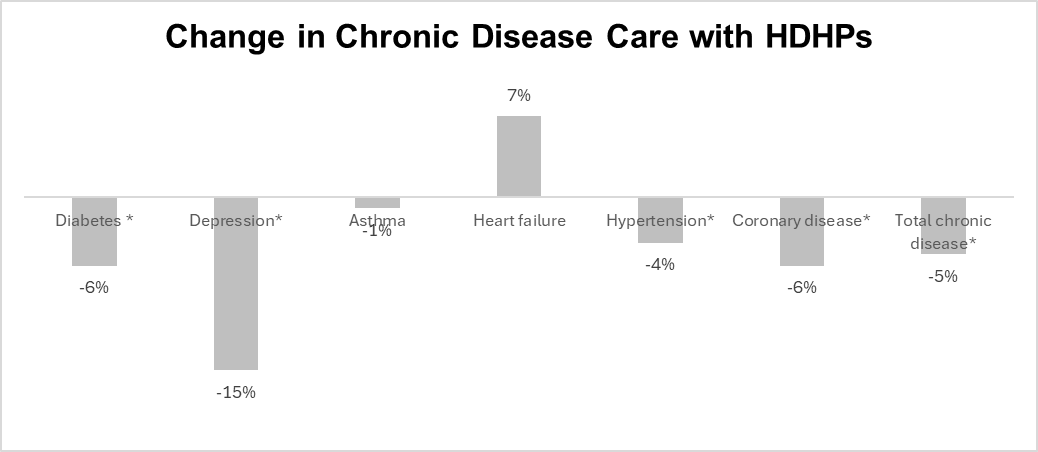HDHPs are associated with less chronic disease care
May 21, 2025
Summary: Employees of firms that moved a large portion of their members to high deductible health plans received fewer evidence-based chronic disease services.
Source: Gidwani, et al JAMA Network Open April 30, 2025. * indicates that the difference was statistically significant.
There are many studies that show that high deductible health plans (HDHPs) are associated with less clinical care, including showing a decline in preventive care and later diagnosis of cancer. Researchers used a large commercial claims database to review changes in chronic disease care between 2016 and 2018 among about 340,000 patients with asthma, diabetes, high blood pressure, heart disease, or depression. They compared use of appropriate chronic disease care among patients whose employer switched to a restrictive approach (more than 80% of subscribers moved into an HDHP) and those whose employer had fewer than 35% of subscribers in an HDHP. They demonstrated that in this group there was a decline in chronic disease care including office visits, laboratory tests and prescription drugs. Overall, those on HDHPs were 5% less likely to receive recommended chronic disease medical care compared to those not on HDHPs.
Implications for employers:
HDHPs offer valuable tax advantages for high income workers, but they are associated with members receiving fewer appropriate high-value services.
Employers can design plan contributions so that HDHPs are less attractive to low-wage workers, who are more likely to fail to receive necessary care. More employers in recent years are also offering at least one non-HDHP to their employees.
Previous research has shown that adding high value drugs to the preventive drug list increases adherence to these medications.
Tomorrow: Declines in vaccination rate could lead to millions of cases of preventable disease

